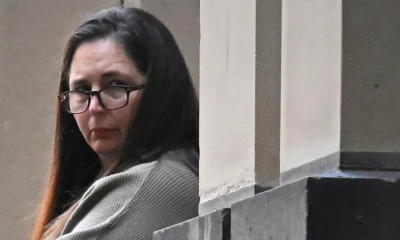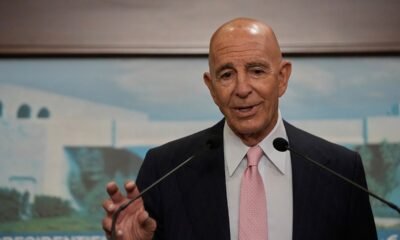INTERNACIONAL
Netanyahu slams Australia PM, says he ‘betrayed Israel and abandoned Australia’s Jews’
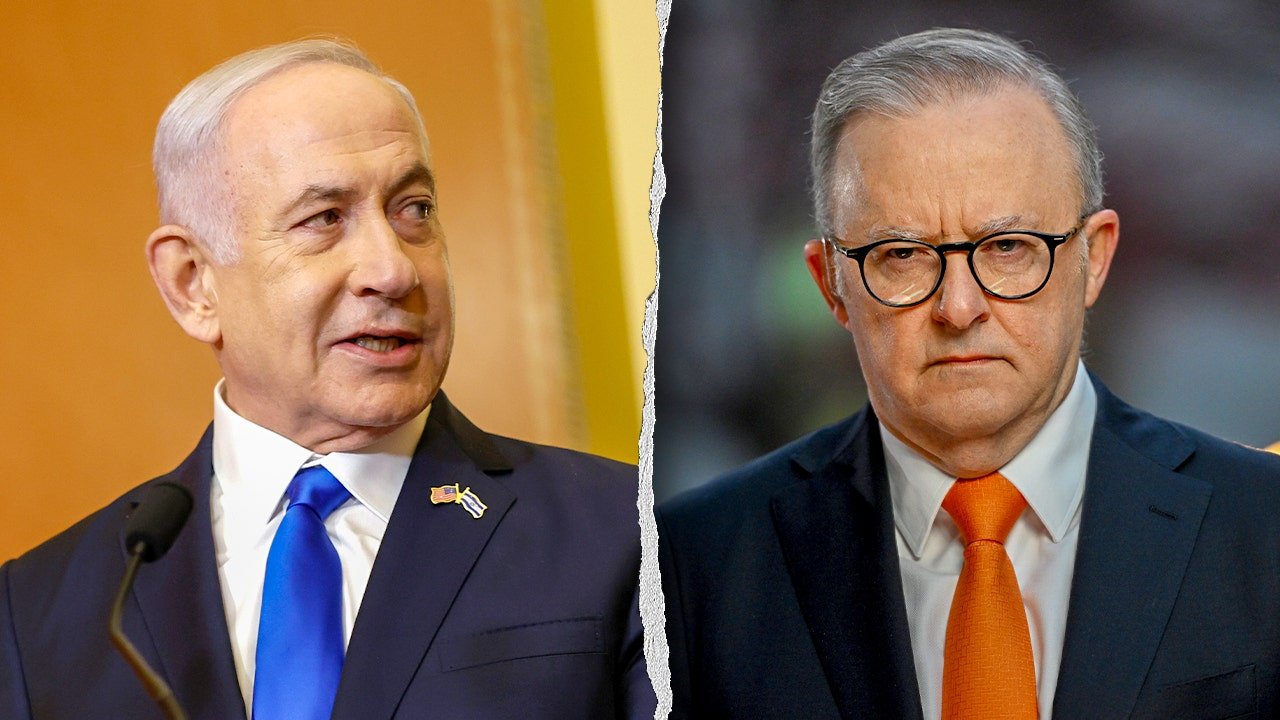
NEWYou can now listen to Fox News articles!
Australia and Israel are trading diplomatic blows with each side taking actions against the other’s officials.
On Tuesday, Israeli Prime Minister Benjamin Netanyahu issued a scathing statement accusing Australian Prime Minister Anthony Albanese of betraying Israel.
«History will remember Albanese for what he is: A weak politician who betrayed Israel and abandoned Australia’s Jews,» Netanyahu said.
Israeli Prime Minister Benjamin Netanyahu said Australian Prime Minister Anthony Albanese betrayed Israel and abandoned Australian Jews. (Anna Moneymaker/Tracey Nearmy/Getty Images)
AUSTRALIA TO RECOGNIZE PALESTINIAN STATEHOOD: ‘HUMANITY’S BEST HOPE’
Albanese announced last week that Australia will recognize the State of Palestine at the United Nations General Assembly in September. The move follows similar commitments made by the U.K., France and Canada. Additionally, Australia also canceled the visa of Religious Zionist Party lawmaker Simcha Rothman, part of Netanyahu’s coalition.
Rothman was set to embark on a «solidarity tour» to meet with Australia’s Jewish community as it grapples with surging antisemitism.
«The timing of the cancellation at the last minute was spiteful and intended to cause maximum harm to the Australian Jewish community. Mr. Rothman received his cancellation on the day he was to head to the airport for his flight,» Australian Jewish Association (AJA) CEO Robert Gregory said in a statement posted to the group’s Facebook. «The message from the Albanese Government to Jews is clear and we urge all Jews to seriously consider whether it is safe for them to visit Australia under this government.»
Despite the ban, AJA arranged for Rothman to address the Jewish community virtually, saying «the show will go on» and «the Jew-haters will not win.»
«The Jewish community won’t bow down to Tony Burke or Penny Wong. Instead of many events, we will hold one large communal event where Simcha will address the Jewish community via Zoom,» AJA announced on X.

‘Free Palestine’ graffiti on a fence praising Oct. 7 Hamas massacre against Israelis. (Executive Council of Australian Jewry )
ANTISEMITIC ATTACKERS VIOLENTLY TARGET SYNAGOGUE, ISRAELI RESTAURANT IN AUSTRALIA
In response, Israeli Foreign Minister Gideon Sa’ar said he would revoke visas for Australian representatives to the Palestinian Authority. He also directed Israel’s embassy in Canberra to «carefully examine any official Australian visa application.»
«While antisemitism is raging in Australia, including manifestations of violence against Jews and Jewish institutions, the Australian government is choosing to fuel it by false accusations, as if the visit of Israeli figures will disrupt public order and harm Australia’s Muslim population,» Sa’ar wrote on X. «It is shameful and unacceptable!»
AJA praised Sa’ar’s decision, saying that «The disgusting antisemitism from the Albanese government deserves a strong response.»
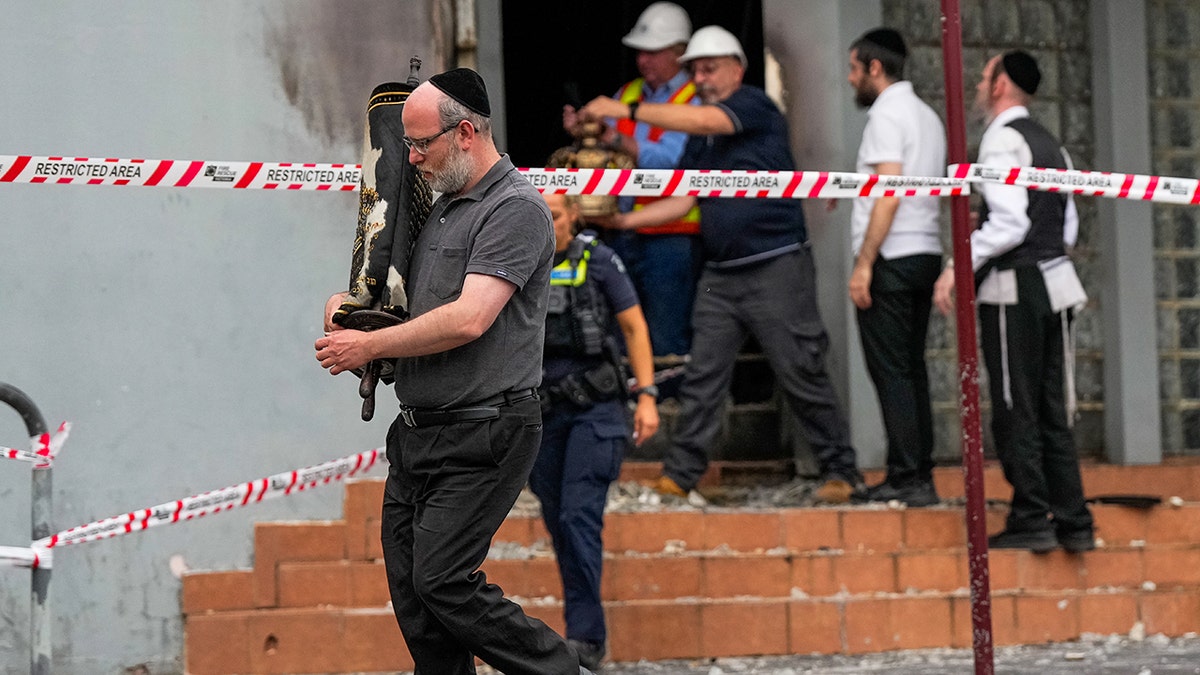
A member of the Jewish community recovers a Torah scroll from the Adass Israel Synagogue on December 6, 2024, in Melbourne, Australia. (Asanka Ratnayake/Getty Images)
CLICK HERE TO GET THE FOX NEWS APP
Australia’s Jews have seen antisemitism surge since Hamas’ Oct. 7 massacre. According to an annual report released by Executive Council of Australian Jewry (ECAJ), from Oct. 1, 2023, to Sept. 30, 2024, the country saw 2,062 anti-Jewish incidents. This marked an increase of 316% since its report of the previous year — Oct. 1, 2022, to Sept. 30, 2023 — when there were 495 recorded incidents. ECAJ has yet to release a report for 2025.
The report documents assaults, verbal abuse, vandalism and other incidents. When broken down into categories, anti-Jewish physical assaults rose by 491% since the previous report and verbal abuse increased by 230% over the same period.
Fox News Digital reached out to AJA and Albanese’s office but did not receive responses in time for publication.
anti semitism,australia,judaism,israel,benjamin netanyahu
INTERNACIONAL
Justice Barrett teases new memoir in abrupt conference exit

NEWYou can now listen to Fox News articles!
Supreme Court Justice Amy Coney Barrett knows how to command an audience.
This was crystallized Monday night at the Swissotel in Chicago, where she spoke for just three minutes to several hundred judges and legal professionals gathered for the Seventh Circuit Judicial Conference.
Her remarks, though short, were optimistic and warm. She urged the courts to keep their sense of «camaraderie and professionalism» despite inevitable, sharp disagreements. This, she said, is «what enables the judicial system to work well.»
Barrett smiled fondly as she remembered her time on the 7th Circuit, where she served for several years prior to her nomination to the Supreme Court. She introduced the next speaker, who took the stage to another standing ovation.
And just as quickly as she entered the packed ballroom, she was gone.
BARRETT EVISCERATES JACKSON, SOTOMAYOR TAKES ON A ‘COMPLICIT’ COURT IN CONTENTIOUS FINAL OPINIONS
Supreme Court Justice Amy Coney Barrett delivers remarks at the 2025 Seventh Circuit Judicial Conference at the Swissotel Chicago on Aug. 18, 2025. (Breanne Deppisch/Fox News Digital)
As the youngest justice on the bench, Barrett’s ideology over her nearly five-term tenure on the Supreme Court has been the subject of furious speculation, and at times, just plain fury.
Conservatives have panned her record as more moderate than that of the late Justice Antonin Scalia, for whom she once clerked. Liberals have been incensed by her reluctance to side more consistently with the court’s left-leaning justices on abortion, federal powers and other seminal cases.
Barrett’s voting record is more moderate than Scalia’s, according to a June New York Times data analysis that found she plays an «increasingly central role» on the court.
Barrett used her time on Monday to implore the group of judges to maintain a sense of grace, decorum, and respect for colleagues, despite the inevitable, heated disagreements that will occur.
The warm, if somewhat lofty, sense of idealism on display is one that is expected to be echoed further in her forthcoming memoir, «Listening to the Law: Reflections on the Court and Constitution,» slated for publication next month.
The theme of Monday’s remarks, to the extent there was one, stressed working toward common goals, accepting ideological differences and embracing disagreement while keeping a broader perspective — a point echoed by Barrett and earlier speakers, who cited David Brooks repeatedly in praising purpose-driven public service.
The upside of so many hours spent in disagreement, Barrett said, is learning how to strike that balance.
«We know how to argue well,» she said. «We also know how to argue without letting it consume relationships.»
CHIEF JUSTICE ROBERTS SOUNDS ALARM ON DANGEROUS RHETORIC AIMED AT JUDGES FROM POLITICIANS
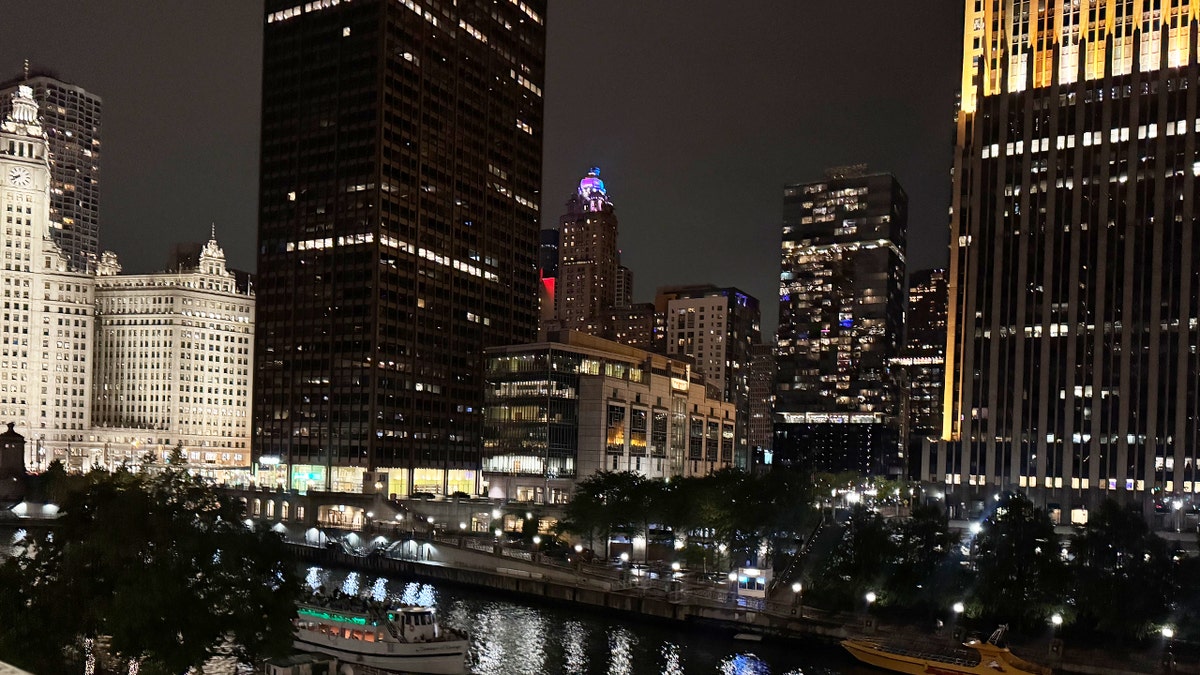
The view from the 2025 Seventh Circuit Judicial Conference at the Swissotel Chicago, Chicago, Illinois, on Aug 18, 2025. Justice Amy Coney Barrett delivered brief remarks to attendees. (Breanne Deppisch/Fox News)
This has been especially true during Trump’s second term, as the Supreme Court presided over a record blitz of emergency appeals and orders filed by the administration and other aggrieved parties in response to the hundreds of executive orders signed in his first months in office.
The high court has ruled in Trump’s favor in the majority of emergency applications, allowing the administration to proceed with its ban on transgender service members in the military, its termination of millions of dollars in Education Department grants and its firing of probationary employees across the federal government, among many other actions.
Even so, it is Barrett who has emerged as the most-talked-about justice on the high court this term, confounding and frustrating observers as they tried and failed to predict how she would vote.
She’s been hailed as the «most interesting justice on the bench,» a «trailblazer,» and an iconoclast, among other things.
But on Monday, she stressed that the commonalities among judges, both for the 7th Circuit and beyond, are far greater than what issues divide them.
As for her own work, Barrett offered few details — her remarks began and ended in less time than it takes to microwave a burrito.

Justice Amy Coney Barrett attends U.S. President Donald Trump’s address to a joint session of Congress at the U.S. Capitol on March 04, 2025, in Washington, D.C. (Win McNamee/Getty Images)
CLICK HERE TO GET THE FOX NEWS APP
It’s unclear if, or to what extent, Barrett’s schedule may have changed at the eleventh hour — a reflection of the many demands placed on sitting Supreme Court justices, whose schedules are often subject to change or cancellation at a moment’s notice.
The 7th Circuit did not immediately respond to Fox News’s questions as to what, if anything, had changed on Barrett’s end.
Questions swirled as she exited. Had she planned longer remarks? Was the agenda misread? Or is she saving details for her memoir and looming book tour, as one reporter suggested?
Her appearance, full of irony, left observers with more questions than answers. Whether she addresses them in the weeks ahead remains to be seen.
supreme court,politics,donald trump,republicans,judiciary
INTERNACIONAL
Anti‑corruption protests hit European nation as calls for new elections grow

NEWYou can now listen to Fox News articles!
Anti-corruption protests rocked the Serbian capital of Belgrade as student-led demonstrators clashed with supporters of President Aleksandar Vucic and his political party, demanding new elections.
Violent clashes between anti-government protesters and Serbian security forces have intensified over the last week, with protesters setting fire to an office building belonging to the ruling party in Novi Sad.
«You will see the full determination of the Serbian state. We will use everything at our disposal to restore law, peace and order,» President Vucic said in an address to the nation Saturday night.
SERBIA ROCKED BY ANTI-CORRUPTION PROTESTS AFTER CONSTRUCTION TRAGEDY
Demonstrators stand in clouds of tear gas during anti-government protests in Belgrade on August 16. (Oliver Bunic/AFP via Getty Images)
Tens of thousands of college students have been marching and protesting since December, demanding justice and accountability after the deaths of 16 people in the collapse of a railway station in the Serbian town of Novi Sad. The canopy at the railway station collapsed Nov. 1 after renovations led by two Chinese companies.
The government is accused of not implementing student demands, including the release of all documentation related to the reconstruction of the train station. In his speech, Vucic said that justice must be served for all those responsible for the 16 victims of the Novi Sad rail station collapse.
Critics have called out the heavy-handed response used against protesters. Alan Berset, Secretary General of the Council of Europe, said in a post on X that he was concerned with the rising violence.

Students and anti-government demonstrators light the flashlights of their mobile phones during a protest, which has become a national movement for change following the deadly November 2024 Novi Sad railway station roof collapse, in Belgrade, Serbia, March 15. (Igor Pavicevic/Reuters.)
SERBIA, CAUGHT BETWEEN EUROPE AND RUSSIA, COULD MOVE ONE STEP CLOSER TO NORMALIZING RELATIONS WITH KOSOVO
«I call for calm and respect of the right to peaceful assembly. Serbian authorities must uphold Council of Europe standards. The rule of law and respect for human rights must prevail,» Berset said.
Serbia’s foreign minister, Marko Djuric, responded to the criticism in a statement to Fox News Digital. «We respect and protect peaceful protest—it is part of our democratic fabric. But when demonstrations turn into physical attacks and attempts to destabilize the country, the government has both the right and the duty to respond.»
SERBIA, CAUGHT BETWEEN EUROPE AND RUSSIA, COULD MOVE ONE STEP CLOSER TO NORMALIZING RELATIONS WITH KOSOVO
«This is by far the biggest threat Vucic has faced in the last 13 years, and it is very unlikely that Vucic will weather the storm without elections,» Helena Ivanov, senior fellow at the Henry Jackson Society, told Fox News Digital.
«The country is not functioning, and the situation is dangerously escalating. The only way out of the problem is to hold free and fair elections as soon as possible. «Everything else will further destabilize the situation, which could have devastating consequences,» Ivanov added.
The government is accused of not fulfilling one of the original student demands, including the release of all documentation related to the reconstruction of the train station.
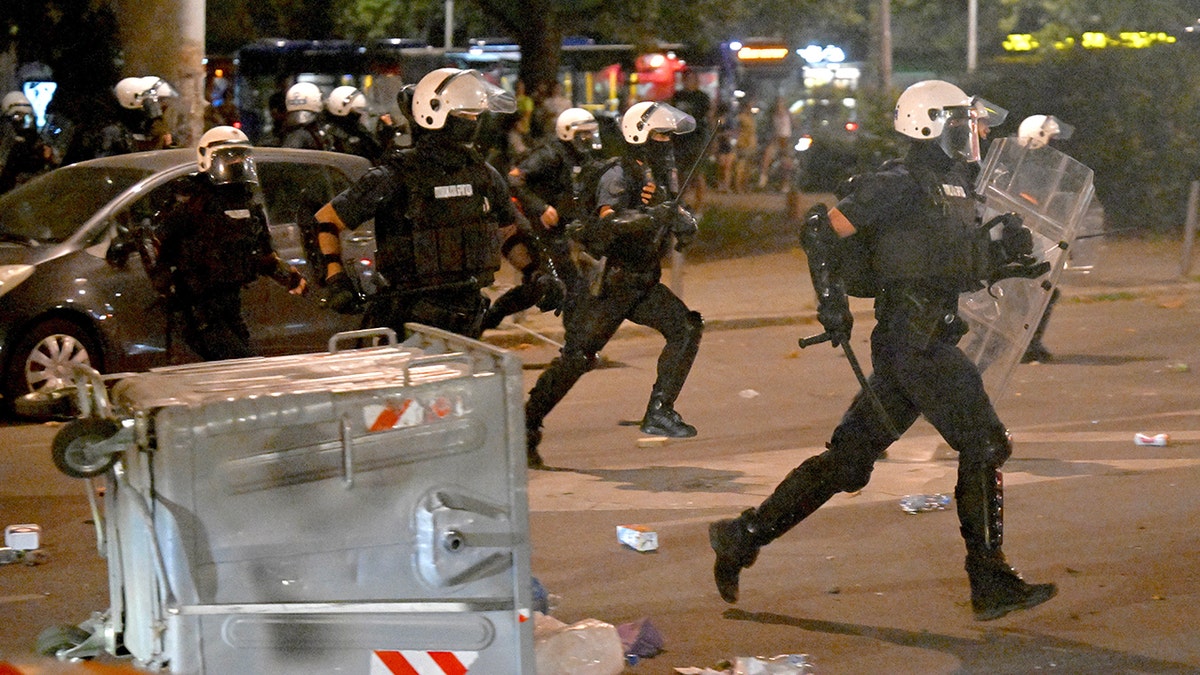
Serbian riot police clash with anti-government protesters in Belgrade on August 13. (Oliver Bunic/AFP via Getty Images)
What originally started as spontaneous protests voicing dissatisfaction with the government’s failed response to the railway catastrophe transformed into a movement opposing widespread corruption and the erosion of the rule of law under Vucic.
One of the largest protests in Serbia’s history took place on March 15, with nearly 350,000 people gathered in Slavija Square in central Belgrade.
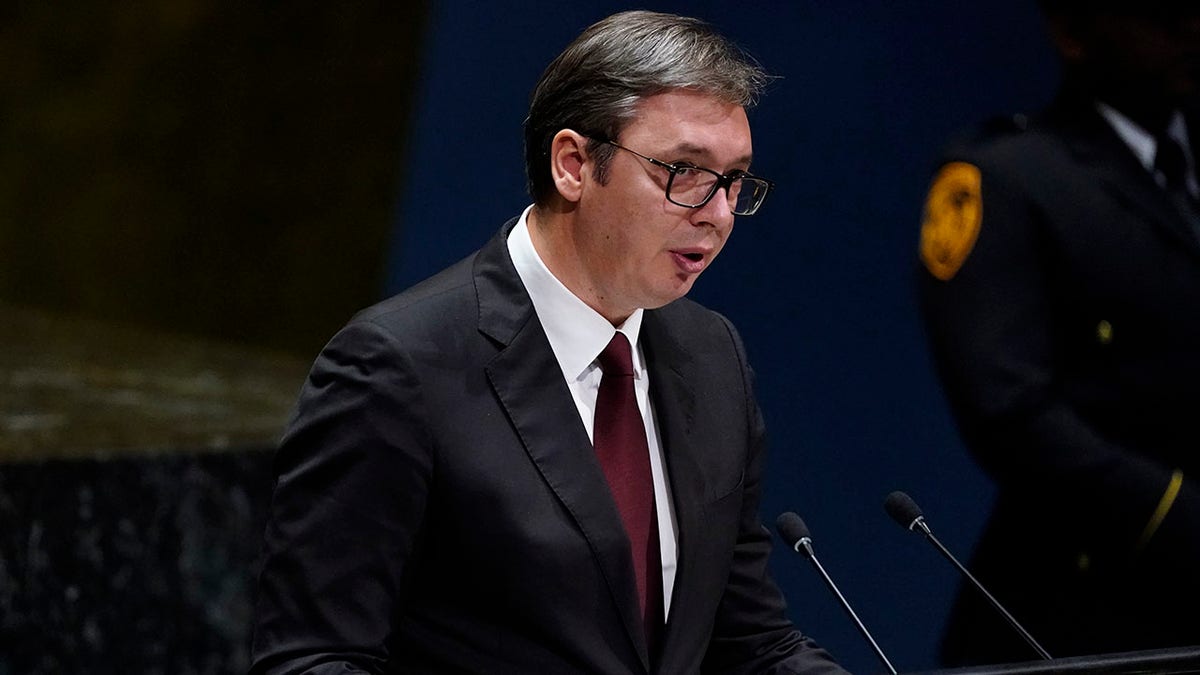
Serbia’s President Aleksandar Vucic United Nations General Assembly at U.N. headquarters in New York City in 2019. Vucic said he accidentally voted against Russia in a Ukrainian resolution because he was «probably tired.» (Reuters)
Serbia’s then-Prime Minister Milos Vucevic announced his resignation in January amid the nationwide protests, making him the most senior government member to step down.
CLICK HERE TO GET THE FOX NEWS APP
«Serbian students put forward several demands, the first and most important being the release of documentation regarding the reconstruction of the Novi Sad train station, where the collapse of the canopy killed 16 people. To this day, no one has been held accountable,» Filip Ubović, a student from the University of Belgrade and protest participant on the ground in Belgrade, told Fox News Digital.
Ubovic said the protests were originally aimed at influencing the institutions responsible for upholding the rule of law, and not directly against the ruling party. As the government failed to hold any officials accountable for the tragedy or release any information on the canopy collapse, the protesters realized that it was time to demand elections.
europe,the balkans,the european union,world protests,world,conflicts
INTERNACIONAL
Pese a las reuniones y las palabras optimistas sobre la guerra de Rusia y Ucrania, los obstáculos para la paz parecen insalvables
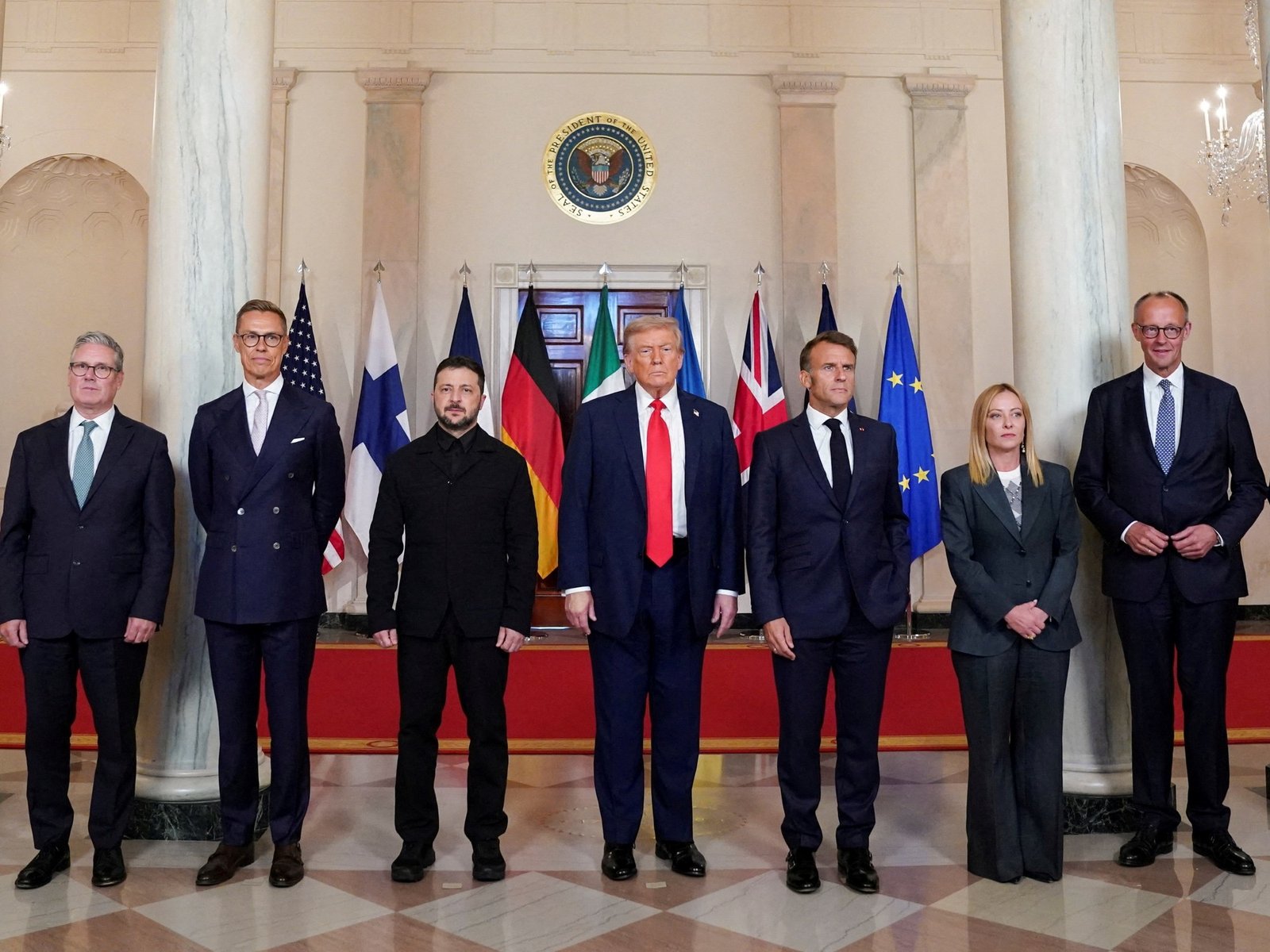
Garantías de seguridad para Ucrania
Acordar un cese del fuego
Territorio ucraniano ocupado
Una reunión entre Putin y Zelenski

 POLITICA1 día ago
POLITICA1 día agoPamela David se disculpó con Karina Milei por haber dicho que usaba un reloj de lujo

 POLITICA2 días ago
POLITICA2 días agoCierre de listas: todos los candidatos a senadores y diputados, las sorpresas y los interrogantes que faltan definir

 CHIMENTOS2 días ago
CHIMENTOS2 días agoEl delicado estado de salud de Cacho Garay: «Sino mejora podrían apuntarle una extremidad»



